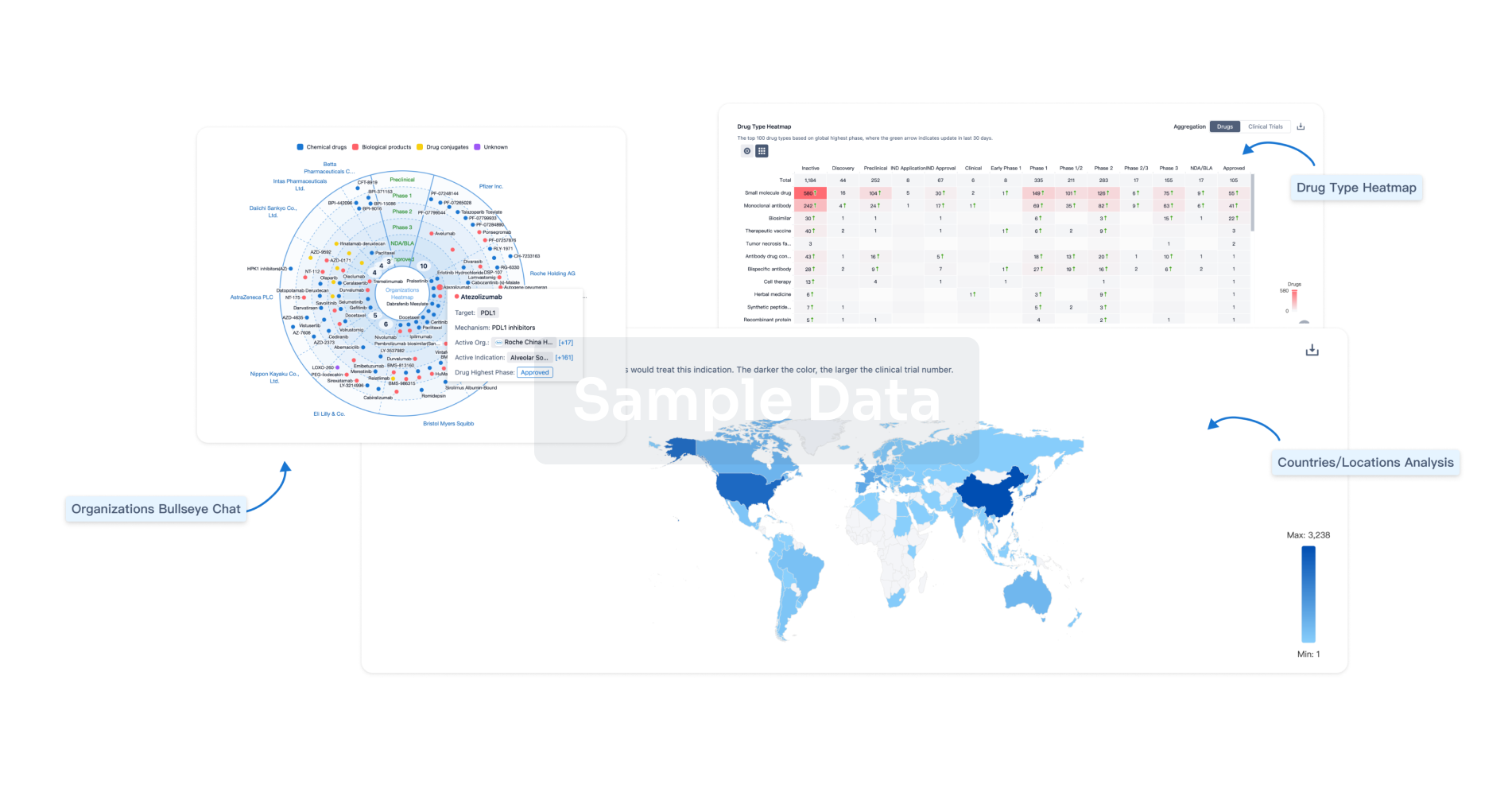Request Demo
Last update 08 May 2025
Mucinosis, Follicular
Last update 08 May 2025
Basic Info
Synonyms Alopecia Mucinosa, Alopecia Mucinosis, Alopecia mucinosa + [24] |
Introduction A disease of the pilosebaceous unit, presenting clinically as grouped follicular papules or plaques with associated hair loss. It is caused by mucinous infiltration of tissues, and usually involving the scalp, face, and neck. It may be primary (idiopathic) or secondary to mycosis fungoides or reticulosis. |
Analysis
Perform a panoramic analysis of this field.
login
or

AI Agents Built for Biopharma Breakthroughs
Accelerate discovery. Empower decisions. Transform outcomes.
Get started for free today!
Accelerate Strategic R&D decision making with Synapse, PatSnap’s AI-powered Connected Innovation Intelligence Platform Built for Life Sciences Professionals.
Start your data trial now!
Synapse data is also accessible to external entities via APIs or data packages. Empower better decisions with the latest in pharmaceutical intelligence.
Bio
Bio Sequences Search & Analysis
Sign up for free
Chemical
Chemical Structures Search & Analysis
Sign up for free
